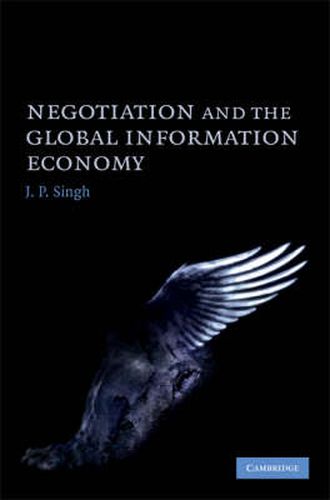Readings Newsletter
Become a Readings Member to make your shopping experience even easier.
Sign in or sign up for free!
You’re not far away from qualifying for FREE standard shipping within Australia
You’ve qualified for FREE standard shipping within Australia
The cart is loading…






What role do diplomacy and negotiations play in economic globalization? Many argue that great powers shape diplomacy to their advantage, others that, in a ‘flat world’, diplomacy helps everyone. Going beyond these polarized views, this book explores the conditions under which negotiations matter and the ways in which diplomacy is evolving in the global commercial arena. J. P. Singh argues that where there is a diffusion or decentralization of power among global actors, diplomacy can be effective in allowing the adjustment of positions so that mutual gains will result. In contrast, when there is a concentration of power, outcomes tend to benefit the strong. There will be little alteration in perception of interest, and coercion by strong powers is common. Singh’s book suggests that there are possibilities for transformational problem-solving through multilateral diplomacy. Empirically, the book examines the most important information-age trade issues.
$9.00 standard shipping within Australia
FREE standard shipping within Australia for orders over $100.00
Express & International shipping calculated at checkout
What role do diplomacy and negotiations play in economic globalization? Many argue that great powers shape diplomacy to their advantage, others that, in a ‘flat world’, diplomacy helps everyone. Going beyond these polarized views, this book explores the conditions under which negotiations matter and the ways in which diplomacy is evolving in the global commercial arena. J. P. Singh argues that where there is a diffusion or decentralization of power among global actors, diplomacy can be effective in allowing the adjustment of positions so that mutual gains will result. In contrast, when there is a concentration of power, outcomes tend to benefit the strong. There will be little alteration in perception of interest, and coercion by strong powers is common. Singh’s book suggests that there are possibilities for transformational problem-solving through multilateral diplomacy. Empirically, the book examines the most important information-age trade issues.